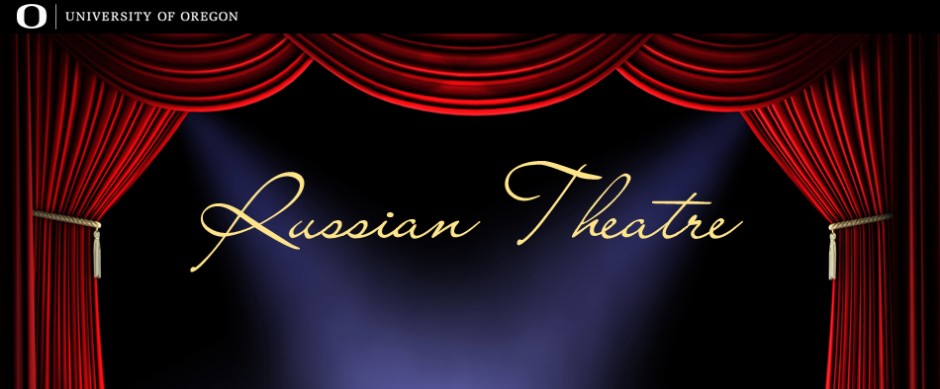1. Language acquisition
(a) Memorizing
Memorizing is a powerful tool of language acquisition. Students will memorize:
• their individual parts
• chorus parts, poems and songs from the play
• several basic directions/commands in Russian
• warm-up language games
During the rehearsals, students usually memorize the whole play as well. It is not required but will often happen due to the immersive nature of the course.
(b) Phonetics
The course packet consists of the audio recording of the play, the text of the play, and phonetic warm-up exercises. Working on pronunciation is a key part of the course. If a student struggles with phonetics, a native speaker from the cast is assigned to work with that student until the required result is achieved.
(c) Vocabulary
• The plays are bilingual. In the packet, every Russian line is translated into English. Whenever actors speak Russian on stage, translation or a summary is provided on stage as live synopsis. Action is explained in English dialogues of two or more foreign or outlandish characters (a Devil and a Poet; an “American director” with his English-speaking cast, or a foreign-raised Russian Empress and her retinue).
• Both Russian and English are used in class. At first, directions are translated into English; later, translations are omitted for several basic commands. Warm-ups teach basic phrases through language games. They are easy and can be learned by students with no prior experience with Russian.
(d) Conversation
Acting invites conversation and communication. In theater, students are relieved of stress they often have in regular language classes. They are no longer themselves, they are their characters or puppets, and they are able to speak in a foreign language with an unusual freedom and ease. In general, the theater class setting creates an informal and warm atmosphere which unleashes freedom of expression and creativity.
2. Study of literature and culture
The plays are designed to acquire cultural literacy. They are either adaptations of classical Russian novels and plays, or entirely original works illuminating certain episodes of Russian history. The professor begins each session with a 20-minute lecture on period literature, culture or history. Several lectures are devoted to history of Russian theater. The basics of contemporary theater were created by the two giants of Russian theater, K.S. Stanislavsky and V.E. Meyerhold. Introductory lectures familiarize students with their work and the traditions and techniques they have established.
3. Russian Play
Characterization, warm-ups and rehearsing constitute over half of the class time. The resulting performance is an important event for the UO and Eugene community. It energizes students and provides them with a sense of achievement. The Russian play is a result of a collective effort of Russian Through Theater students, REEES, the UO Theater Department, Global Scholars Hall, and the Russian community. An estimated group of 300-400 people attend every Russian Theater play.
